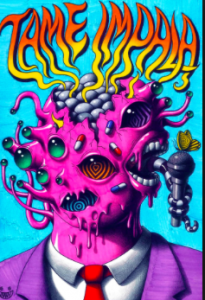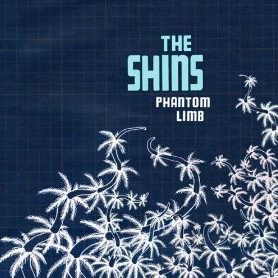Two genres of music that consist of a large similarity are alternative, and indie, and fall under the same specific genre of music, as well. When it comes to the two, alternative and indie music both categorize under the “rock” genre of music, meaning that there’s a type of “indie rock” and “alternative rock.” Many frequent listeners of this genre(s) of music would agree that the two sound very similar. For example, I have selected four bands that compose alternative and indie music, and will further explain the differences and similarities, as this concerns the study of generic criticism.
Alternative: The Head and the Heart & Young the Giant
When I researched “alternative music” the only definitions given were in relation to alternative rock. However, when I pull up the two bands I selected, the genre they fall under, is alternative alone. Thus, the genre of alternative music indicates that it may need a whole separate genre itself. By definition, from https://audials.com/en/genres/alternative_music.html , “Alternative rock is a genre of rock music from the underground music scene of the 1980’s and became widely popular in the 1990’s. The term “alternative” was coined in the 1980’s to describe punk rock inspired bands on independent record labels that did not fit into the mainstream genres of the time.” (Audials, 2018). While this definition is helpful in some ways, it does not answer my initial question, that is, “What is alternative music?” If I wanted to know about alternative rock, I would have asked about that specific type of music. With that being said, it brings me curiosity whether the genre, rock, has taken over alternative music, or whether it’s become it’s own genre in itself, because from my understanding, these two bands, which, I’m highly fond of, are not alternative rock, but are simply, alternative.


The difference/similarity:
Now, after more research, it has come to my attention that one difference between indie and alternative music, is that the two portray more loose thoughts and ideals than most definitive types of music. The main difference is where the musicians derived. Alternative music was popular in America, essentially, whereas indie was directly from Britain. Where these loose genres make up similarities is that they both aim to produce music that one might say “doesn’t follow the crowd.” Also known as, not your typical type of music, whichever that may be. (Perhaps pop, country, hip-hop, more “well-known” genres).
research from: https://www.thoughtco.com/are-alternative-music-indie-the-same-94033
Indie: Tame Impala & The Shins
When it comes to indie music, this loose genre, falls under the category of rock as well, thus justifying it’s similarity to alternative. Indie music is said to be music that is made independently from common music companies. Indie rock, however, is said to be of the same genre as alternative rock.
research from: http://theconversation.com/explainer-indie-music-28321


Confused? I am too. Isn’t that the beauty of generic criticism? 🙂
In conclusion, generic criticism has signaled me to recognize that most genres, of any kind, have deeper meanings, and further names for their genres. In this case, alternative and indie music can fall under the genre of rock, making it alternative rock, and indie rock, however, the four bands listed above compose their own genres aside from the genre of rock. Therefore, while it’s easy to assume one may have knowledge of specific genres, there can also be a whole other meaning, and name, to those genres.

test